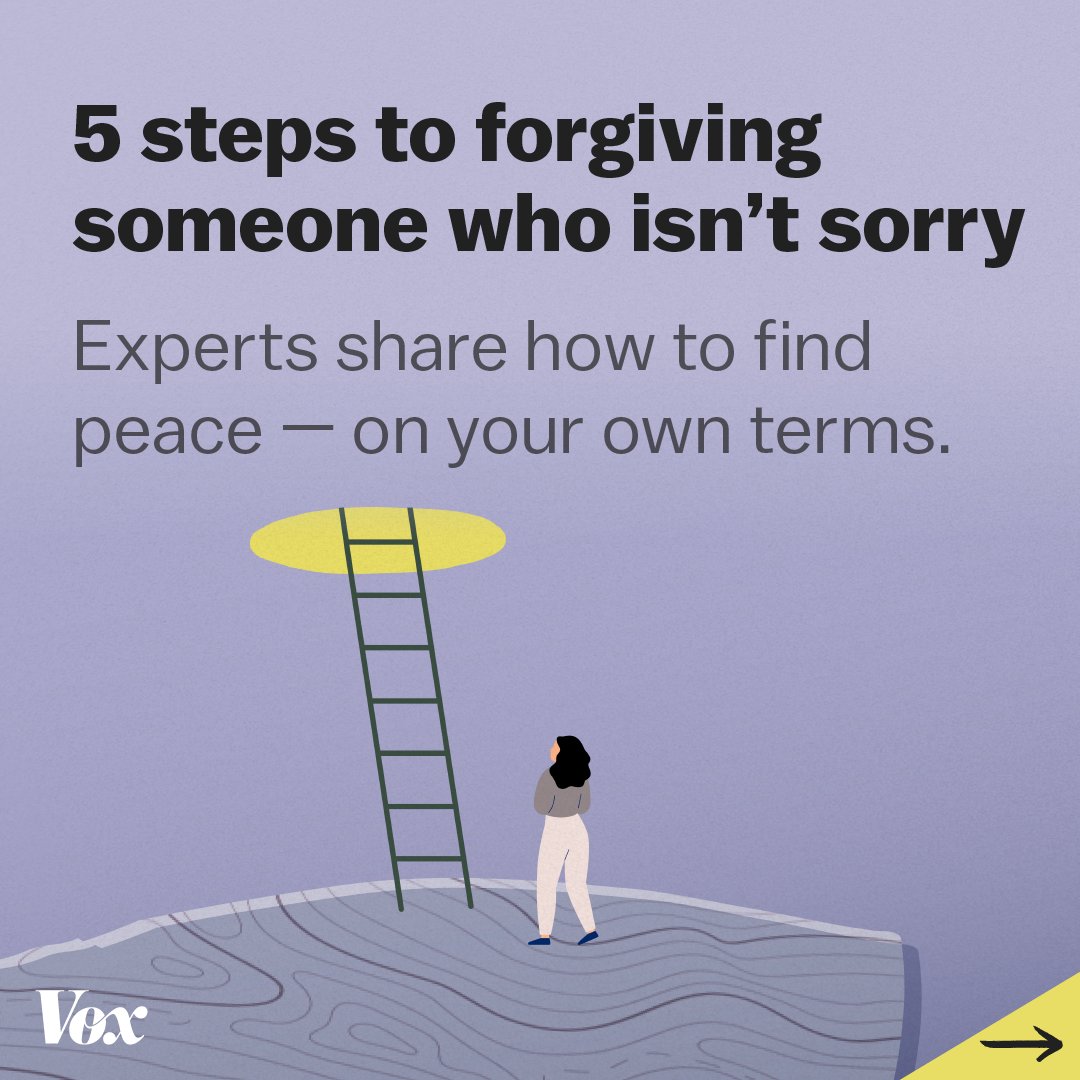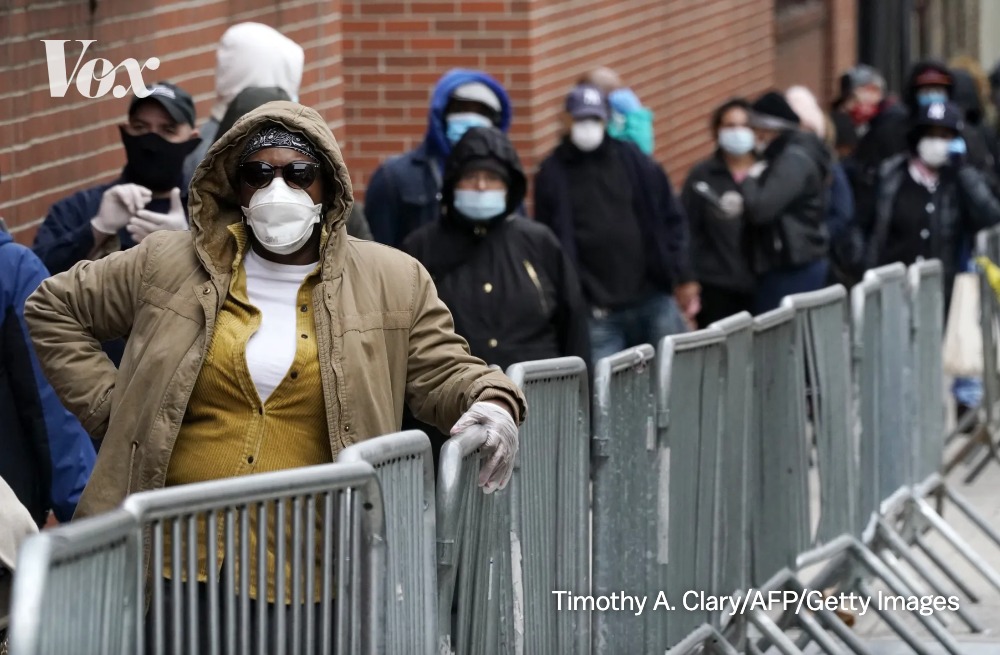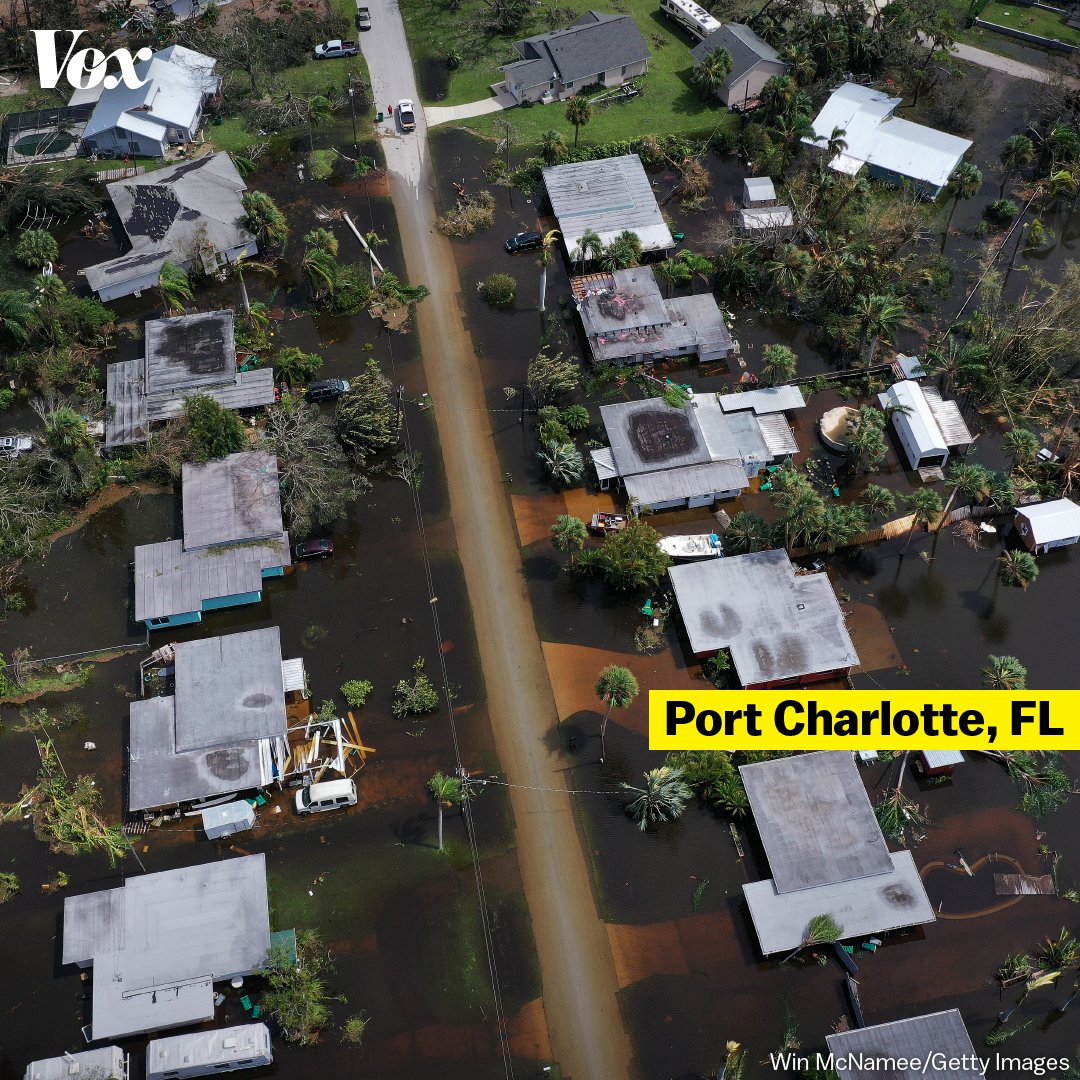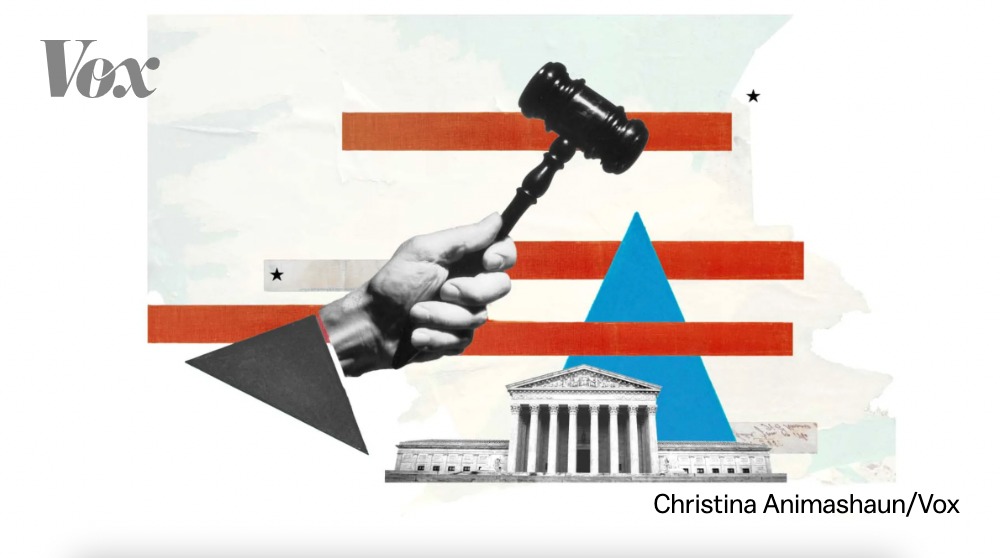1/ We often think of forgiveness as something we do for other people. That view is limiting.
Forgiveness doesn't require an apology or participation from the person who hurt you. Here's how to find peace — on your own terms. trib.al/nlhCQhl
Forgiveness doesn't require an apology or participation from the person who hurt you. Here's how to find peace — on your own terms. trib.al/nlhCQhl

2/ Experts we interviewed recommend thinking of forgiveness as something that exists separately from reconciliation and accountability.
It's not at odds with seeking justice. In fact, it can help you get there because you're no longer, as one expert put it, "seething with rage."
It's not at odds with seeking justice. In fact, it can help you get there because you're no longer, as one expert put it, "seething with rage."

3/ Forgiveness doesn't require you to pretend the hurt didn't happen, or to ever speak to the person who hurt you again.
Once you remove reconciliation as a goal, it can be easier to see how it gives you a chance to fully cut your mental connection to the person who hurt you.
Once you remove reconciliation as a goal, it can be easier to see how it gives you a chance to fully cut your mental connection to the person who hurt you.

4/ Being willing to let go of the anger and hurt can be one of the hardest aspects of forgiving. It can feel like surrendering.
Don't hang onto those negative emotions for too long.
Don't hang onto those negative emotions for too long.

5/ Being ready to forgive someone who hurt you takes time, as does the work of forgiving them.
Don't be too hard on yourself if you're struggling to forgive.
Don't be too hard on yourself if you're struggling to forgive.

6/ Finally, it's important to acknowledge that there's real work involved in forgiveness — and it takes time. trib.al/nlhCQhl 

7/ The story above was published as part of Vox's series on America's struggle for forgiveness.
You can read all six pieces now. We hope they spark introspection, start conversations, and make the case for the construction of a more forgiving future. vox.com/22983102/forgi…
You can read all six pieces now. We hope they spark introspection, start conversations, and make the case for the construction of a more forgiving future. vox.com/22983102/forgi…
• • •
Missing some Tweet in this thread? You can try to
force a refresh










